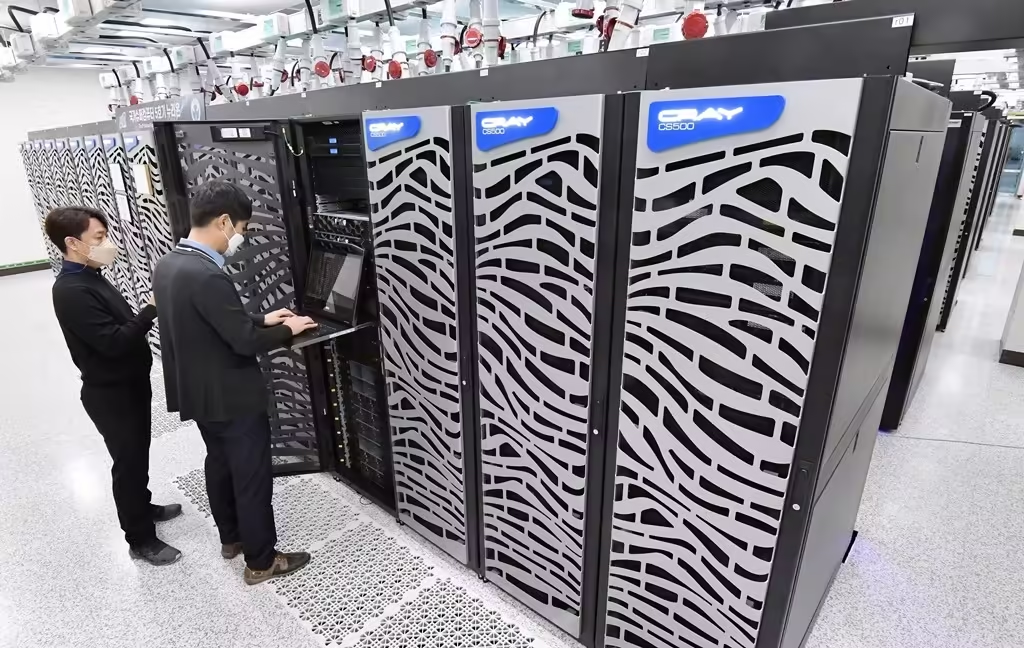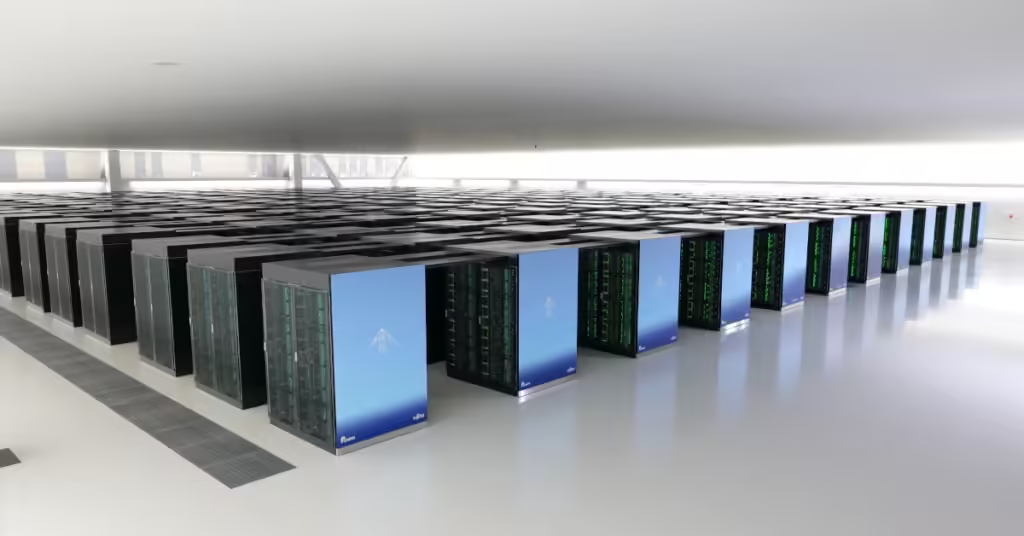Table of Contents
ToggleIn 2025, Japan will begin construction on the very first global “Zeta-Class” supercomputer
In a groundbreaking move that could redefine the boundaries of computing, Japan is preparing to construct the world’s first “zeta-class” supercomputer by 2025. This machine, projected to be 1,000 times more powerful than today’s fastest supercomputers, represents the next quantum leap in computational power. Japan has been a leader in supercomputing for decades, consistently competing at the highest level, and the advent of the zeta-class machine is set to place the country firmly at the forefront of global computational innovation. This supercomputer will usher in new possibilities for fields ranging from scientific research to artificial intelligence and beyond.
Understanding the Zeta-Class Supercomputer
The term “zeta-class” refers to a system capable of executing at least one zettaflop, which equates to a staggering 10²¹ (one sextillion) floating-point operations per second (FLOPS). To put this into perspective, today’s fastest supercomputer, the Fugaku, also developed by Japan, operates at approximately 442 petaflops (4.42 × 10¹⁷ FLOPS) on its peak performance, though this fluctuates depending on the type of calculations it is performing. This new machine, however, will operate at one zettaflop, marking a leap by a factor of 1,000 times over Fugaku and any of its current competitors.
Supercomputers are vital to various aspects of modern society, playing a key role in fields such as climate modeling, genomics, nuclear physics, pharmaceuticals, and even space exploration. Their power lies in their ability to perform massively parallel computations at unprecedented speeds, enabling scientists and researchers to solve problems that were previously thought impossible or that would take years to compute on conventional systems.

The development of zeta-class systems not only promises exponentially greater speed but also introduces new architectures and computing paradigms to accommodate the vast energy and cooling requirements such machines will necessitate. The processing speed offered by zettaflops will enable entirely new scientific discoveries and breakthroughs, accelerating advancements in virtually every field of computational science.
Japan’s Supercomputing Legacy
Japan’s dominance in supercomputing has been a strategic focus of the country for years. Since its 2020 launch, the RIKEN and Fujitsu-developed Fugaku supercomputer has repeatedly been ranked as the fastest in the world. With its enormous processing power, Fugaku has contributed to various research fields, including COVID-19 pandemic modeling, drug discovery, and weather forecasting.

The leap to zeta-class computing is a natural progression for Japan, with the country setting its sights on maintaining leadership in the global supercomputing arms race. Governments worldwide have recognized the strategic importance of supercomputing capabilities in everything from national security to scientific innovation. China, the U.S., and the European Union are all developing their own exascale supercomputers, the current cutting edge of supercomputing technology. Japan’s zeta-class ambitions, however, represent a bold leap beyond exascale (10¹⁸ FLOPS), which most nations are still striving to achieve.
Potential Applications of Zeta-Class Computing
The potential applications for a zeta-class supercomputer are vast and transformative. One of the primary areas where this machine is expected to have a significant impact is in climate science. Climate models are inherently complex, involving numerous variables interacting over long periods of time. Currently, even the most advanced supercomputers struggle to provide accurate simulations with high-resolution data. A zeta-class computer could run simulations at far higher resolutions and account for a greater number of variables, improving the accuracy of long-term climate forecasts and models, which are crucial for understanding and mitigating the effects of climate change.
In pharmaceuticals and genomics, the zeta-class system could revolutionize personalized medicine. Researchers will be able to model proteins and molecular structures in unprecedented detail, allowing for the rapid discovery of new drugs and treatments for a wide range of diseases. The COVID-19 pandemic showed how critical high-performance computing is to global health, and the next generation of supercomputers will enable even faster responses to emerging health crises.
Artificial intelligence (AI) and machine learning (ML) will also benefit immensely from zeta-class computing power. Training sophisticated AI models, especially in natural language processing or autonomous systems, requires vast computational resources. Zeta-class systems will dramatically accelerate the training process for these AI models, enabling more sophisticated and efficient algorithms and applications in robotics, autonomous vehicles, and more.
Challenges and Future Considerations
Building a zeta-class supercomputer will not be without its challenges. One of the primary concerns is energy consumption. Current supercomputers, like Fugaku, already consume megawatts of electricity. A zeta-class system, being exponentially more powerful, will require even more energy to operate. Ensuring that this machine is energy-efficient and capable of running sustainably will be critical. Researchers are also working on cooling systems and new materials to handle the extreme heat generated by such powerful machines.
Moreover, the cost of developing a zeta-class system will be astronomical, potentially requiring billions of dollars in investment. International collaboration and governmental support will likely be necessary to bring this vision to fruition.
Conclusion
Japan’s plan to build the world’s first zeta-class supercomputer marks a new era in computational science. This machine, 1,000 times more powerful than today’s fastest supercomputers, will transform industries and scientific research, enabling breakthroughs that were previously unimaginable. However, the challenges of energy consumption and cost will need to be carefully managed. As we look to the future, the zeta-class supercomputer stands as a symbol of human innovation, pushing the boundaries of what is possible in science, technology, and beyond.
Stay tuned for more updates…